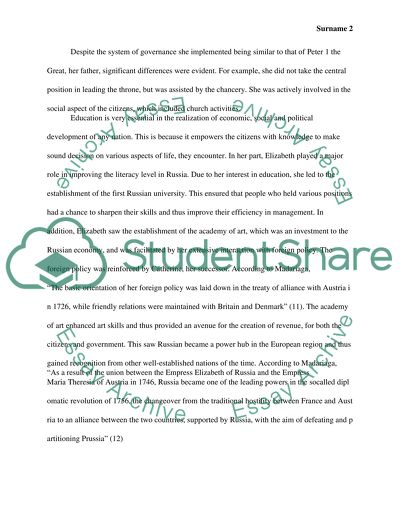Cite this document
(“Empress elizabeth Essay Example | Topics and Well Written Essays - 1000 words”, n.d.)
Retrieved from https://studentshare.org/history/1458525-empress-elizabeth
Retrieved from https://studentshare.org/history/1458525-empress-elizabeth
(Empress Elizabeth Essay Example | Topics and Well Written Essays - 1000 Words)
https://studentshare.org/history/1458525-empress-elizabeth.
https://studentshare.org/history/1458525-empress-elizabeth.
“Empress Elizabeth Essay Example | Topics and Well Written Essays - 1000 Words”, n.d. https://studentshare.org/history/1458525-empress-elizabeth.


